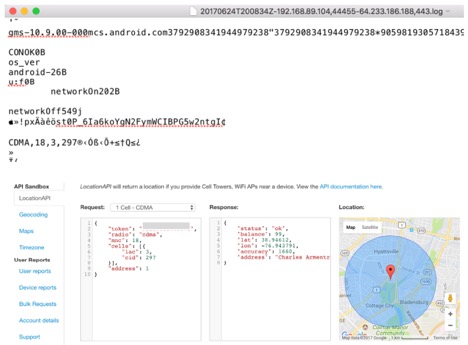There are some estimates that Android phones make up 55% of all smartphone sales in the United States, making it the most widely used smartphone OS in the country. A lot of those users know that Google, and some other apps, might be tracking their location. What those same users don’t know is that Google knows where you are even if you disabled location services and even if you don’t have a SIM card in your phone.
Quartz has conducted an investigation and found some very interesting info. Since the beginning of 2017 Google has been keeping track of user location via nearby cellular towers. This resulted in Google having a lot of data on you even if you didn’t want it to. After contacting Google about this Quartz got a response that this practice is still used but that it will end by the end of the year.
“In January of this year, we began looking into using Cell ID codes as an additional signal to further improve the speed and performance of message delivery, however, we never incorporated Cell ID into our network sync system, so that data was immediately discarded, and we updated it to no longer request Cell ID.” a spokesperson told Quartz in their response regarding this tracking issue.

What remains unclear is how can cell-tower addresses that are transmitted as data strings improve messaging speed. What is clear is that Google can pinpoint your location by triangulating signals from different cellular towers. This is a lot easier in urban areas that have more towers close together.
All data sent to Google is encrypted but that doesn’t completely remove the doubt that this data could also be sent to third parties. It isn’t a troubling fact for a lot of people but if Google knows the locations of law enforcement workers and victims of domestic abuse that data could have big consequences.
Companies like Facebook are known to make huge profits from this data. Geo and location-targeted ads are becoming a common thing. Based on your search history and current location you will be served with ads that match your current interests and location. While it may look harmless, such data can always be collected by hackers and be used against you.
This location-sharing practice wasn’t limited to a specific model of Android phone or tablet so everyone’s location data has been collected. The data was sent once the device got connected to a WiFi network or had cellular data enabled. Bill Budington, a software engineer who works for the Electronic Frontier Foundation, a nonprofit organization commented on this event. “You can kind of envision any number of circumstances where that could be extremely sensitive information that puts a person at risk.”
Google’s privacy policy does mention that user data will be collected but they did not mention how they will be collecting it.
“When you use Google services, we may collect and process information about your actual location. We use various technologies to determine location, including IP address, GPS, and other sensors that may, for example, provide Google with information on nearby devices, Wi-Fi access points and cell towers.”
What are your thoughts on this? Let us know in the comments below.



